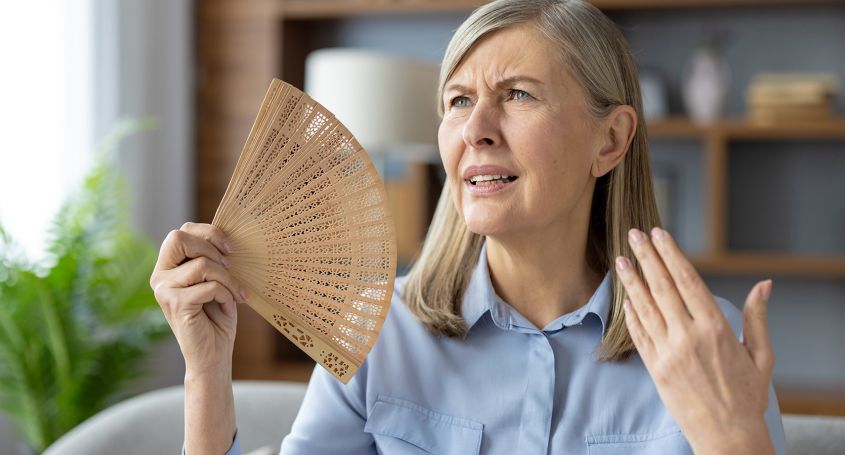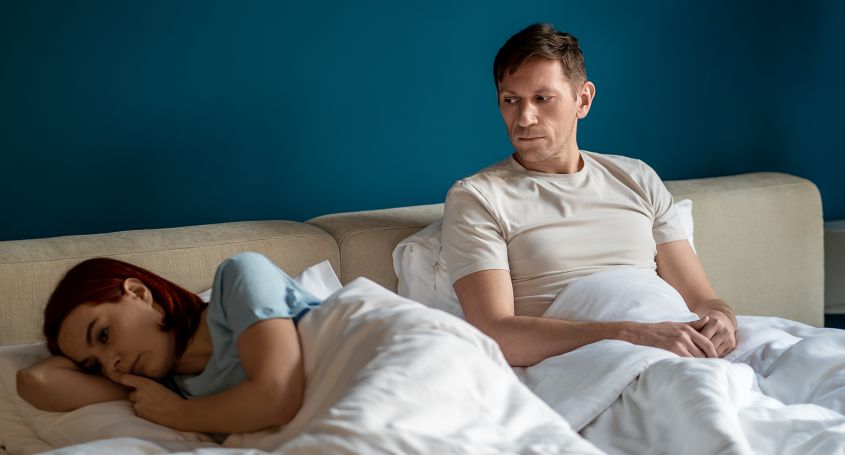Menopause is a natural stage in a woman's life that marks the end of her reproductive years. However, just because it is a natural process does not mean that it is easy to go through. Hormonal changes can affect both the body and mood, and understanding what happens during this phase can make the transition easier.
What is menopause and why does it happen?
Menopause is defined as the loss of ovarian follicular function, which involves the permanent cessation of menstruation and a significant decrease in estrogen levels. It usually occurs between the ages of 45 and 55 as part of the natural aging process.
However, it can also occur prematurely (before age 40), which is known as premature ovarian failure. In these cases, it may be related to genetic factors, medical treatments (such as chemotherapy or radiation therapy), or autoimmune diseases.
It is usually diagnosed when a woman, in the absence of other causes, has 12 consecutive months without menstruation.
Main symptoms of menopause
The symptoms of menopause vary in intensity and duration depending on the woman. The most common include:
- Vasomotor symptoms: hot flashes and night sweats.
- Genitourinary symptoms: dryness, pain during sexual intercourse (dyspareunia), and incontinence.
- Psychological symptoms: insomnia, mood swings, symptoms of depression or anxiety.
- Metabolic symptoms: increased cardiovascular risk, osteoporosis, and changes in body composition.
What treatments are available to manage menopause?
There are different therapeutic approaches that can help improve the symptoms of menopause. The choice of one or the other will depend on the intensity of the symptoms, the patient's medical history, or her personal preferences.
1. Hormone replacement therapy
This consists of administering exogenous estrogen and progesterone to replace the hormone deficiency. It is the most effective treatment for relieving vasomotor symptoms and preventing bone loss. However, its possible side effects mean that it is not suitable for all patients. Its use must be supervised by a specialist and always tailored to the individual.
2. Non-hormonal treatments
For women who cannot or do not wish to use hormones, there are alternatives for treating the various symptoms of menopause.
- Psychological support and, if necessary, pharmacological treatment.
- Natural products to relieve symptoms (isoflavones, black cohosh, etc.).
- Vaginal lubricants and creams for dryness.
- Drugs for the prevention of osteoporosis.
3. Lifestyle changes
Adopting healthy habits can alleviate many of the symptoms associated with menopause:
- Maintain a balanced diet rich in calcium and vitamin D.
- Exercise regularly, including strength training.
- Avoid alcohol and tobacco.
- Practice stress management techniques such as mindfulness or yoga.
Menopause is not a disease, but a natural transition that can be successfully managed with reliable information, medical support, and the right resources. Whenever symptoms interfere with your quality of life, it is advisable to consult a specialist who can help you live this stage with well-being and fulfillment.
Dr. Cristina Guix
Gynecologist specializing in fertility at Barcelona IVF




















